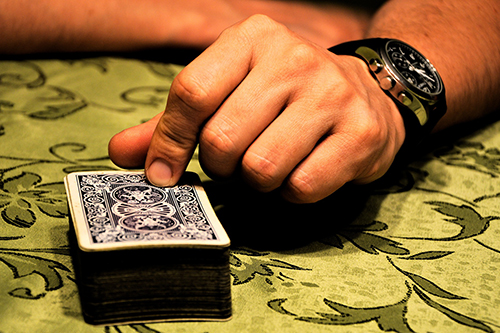GambleAware is today [5 December] holding its annual conference, with the theme of 'Keeping children and young people safe from gambling harms'. The event, which will be attended by gambling industry experts, policymakers and treatment providers will also be a forum of discussion for the gambling specific findings of the Children of the 90s study.
The study measured young peoples' gambling at 17, 20 and 24-years-old and revealed that those who gambled weekly were more likely to be male and had developed regular patterns of play and gambling habits by the age of 20. Participation in gambling in the past year was reported by more than half (54 per cent) of 17-year-olds, which increased to almost seven in ten (68 per cent) for 20-year-olds, and fell slightly by the time those taking part reached the age of 24, to nearly two thirds (66 per cent) saying they had gambled in the past year. The sample used included over 3,500 people for each age group, as well as data from surveys and interviews with parents, which were carried out before engaging with their children on the topic of gambling.
When looking at gambling activity, researchers found that playing the lottery, buying scratch cards and placing private bets with friends were the most common forms of gambling. As the young people got older, there was a significant increase in online betting activity amongst men, going from nine per cent at age 17, to 35 per cent at age 20, and 47 per cent at age 24. There was also an increase amongst women, however not as significant, rising from 0.8 per cent at 17 to four per cent at 20 and 11 per cent at 24.
The study suggests that for young people who gambled regularly, several environmental and family factors had a significant impact on their activity. For example, participants whose parents gambled regularly were more likely to gamble themselves and regular gamblers were also found to have high social media usage and to have been regular players of video games when younger. Regular gamblers had lower well-being scores and were at least twice as likely to smoke cigarettes daily and to drink alcohol weekly. A small minority (six to seven per cent) of regular gamblers had problems with gambling and at the age of 24 these were more likely to abuse drugs and alcohol, and to engage in criminal activity.
Marc Etches, CEO of GambleAware, said: “GambleAware is focused on keeping people safe from gambling harms. In particular, we are concerned to protect children and young people who are growing up in a world where technology makes gambling, and gambling-like activity, much more accessible. One in eight 11-16-year olds are reported as following gambling businesses on social media, for example. Our annual conference will showcase the ‘Bristol Children of the 90s’ study alongside other important contributions to discussions that will examine the theme of gambling and young people from a public health perspective.”
Alan Emond, Emeritus Professor of Child Health at the Centre for Academic Child Health at Bristol Medical School: Population Health Sciences, added: “The unique features of the Children of the 90s gambling study are that the parent's gambling was measured before the young people's gambling, and the young people were asked about their gambling activity three times in the transition period from adolescence into young adulthood. Although many young people gambled without any harm, a small minority (six to seven per cent) of males showed problem gambling behaviours associated with poor mental health and wellbeing, involvement in crime, and potentially harmful use of drugs and alcohol. To protect these vulnerable young people from gambling harm requires a combination of education, legislation and appropriate treatment services."
The study, based at the University of Bristol, demonstrates GambleAware's ongoing work to collaborate with key parties to help prevent gambling harms. Having been subject to a robust evaluation and process, the research reaffirms the charity’s track record of funding independent research which can be used to better understand the nature of gambling harms.
The conference will also be hosting discussions about the upcoming GambleAware commissioned research by the Royal Society for Public Health (RSPH), which explores the attitudes of young people to gaming and gambling, including their concerns about it’s addictive nature. Researchers will talk about their findings and how young people and children view loot boxes and skin betting as addictive. Conversations will also cover issues around 11-14 year olds participating in activity they deem the most addictive, as well as the negative impact the relationship between gambling and gaming, as well as gambling and sport, has on young people's lives.
